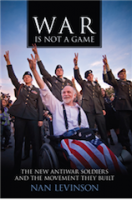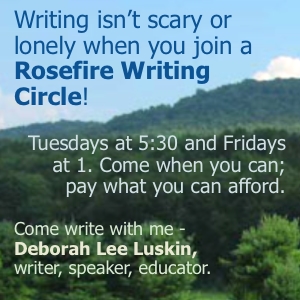 Wednesday, June 10, at 7 PM, join writer, teacher, and journalist, Nan Levinson, for a reading and discussion of her latest book War Is Not a Game: The New Antiwar Soldiers and the Movement They Built. Written with sensitivity and humor, War Is Not a Game gives readers an uncensored, grunt’s-eye view of the occupations in Iraq and Afghanistan, while conveying the equally dramatic struggles that soldiers face upon returning home.
Wednesday, June 10, at 7 PM, join writer, teacher, and journalist, Nan Levinson, for a reading and discussion of her latest book War Is Not a Game: The New Antiwar Soldiers and the Movement They Built. Written with sensitivity and humor, War Is Not a Game gives readers an uncensored, grunt’s-eye view of the occupations in Iraq and Afghanistan, while conveying the equally dramatic struggles that soldiers face upon returning home.
On July 23, 2004, five marines, two soldiers, and one airman became the most unlikely of antiwar activists. Young and gung-ho when they first signed up to defend their country, they were sent to fight a war that left them confused, enraged, and haunted. Once they returned home, they became determined to put their disillusionment to use. So that sultry summer evening, they mounted the stage of Boston’s historic Faneuil Hall and announced the launch of Iraq Veterans Against the War.
War Is Not a Game tells the story of this new soldiers’ antiwar movement, showing why it was born, how it quickly grew, where it has struggled, and what it has already accomplished. Nan Levinson reveals the individuals behind the movement, painting an unforgettable portrait of these predominantly working-class veterans who became leaders of a national organization. Demanding to be seen neither simply as tragic victims nor as battlefront heroes, the Iraq Veterans Against the War have worked to shape the national conversation. This book celebrates their bravery, showing that sometimes the most vital battles take place on the home front.
Levinson has written about civil and human rights, culture, and technology. Her last book, Outspoken: Free Speech Stories, grew from her reporting as the U.S. correspondent for Index on Censorship. Nan discussed this book at Brooks Memorial Library in 2004.
Location Library’s Meeting Room 2nd Floor. For more information contact Brooks Library by phone at 802-254-5290 ext 0, by email at info@brookslibraryvt.org, or on the web at brookslibraryvt.org. Brooks Memorial Library, 224 Main Street, Brattleboro, VT 05301. The event is free and open to the public.
Reviews of War Is Not a Game
“Nan Levinson has brought to life an important piece of recent history, both tragic and inspiring, told the story beautifully, and found some genuine American heroes.”—Adam Hochschild, author of To End All Wars: A Story of Loyalty and Rebellion, 1914-1918
“War Is Not a Game dramatically underscores the folly of war, serving as a reminder of the physical and emotional costs of war to those directly involved on the ‘killing fields’ and their families.”—Ann Wright, US Army Reserve Colonel, US diplomat who resigned in 2003 in opposition to the Iraq War
“Those affected by war and in a moral game of throes are the subjects of this rare, compassionate and informative narrative about people who ‘never came close to stopping the army from doing what it wanted’ in the last decade but ’caused people in the army to stop and reconsider.'”—Military Times



War Games
I was looking at the cover of the new Post magazine, which features The Avengers, and it got me to thinking how much war imagery permeates our culture. We have warriors, monsters, superheroes, “bad guys”, androids, soldiers, and all kinds of crazy fighters, all of them shooting and slashing and smiting and blowing up battalions of enemies. We are a siege people, always at war, at least in popular culture.
Think about it — video games. Totally about killing things or blowing them up. Summer blockbusters generally have very high body count, although no one gets any points except maybe the production company. We like cop shows and horror movies, even Westerns, if they’re the right kind.
Given how much popular culture sells war and has for my entire lifetime, it’s almost surprising to learn that some soldiers with battlefield experience are coming back with anti-war sentiment. I’m sure it’s a minority view, and probably there are some soldiers who stay gung ho, but when even a few veterans stand for peace, it means something. They know better than we do what goes on.
War and games are interwoven in our culture. It’s not surprising our leaders still regard wars as such, even when the games are in real places using live ammo against real people.